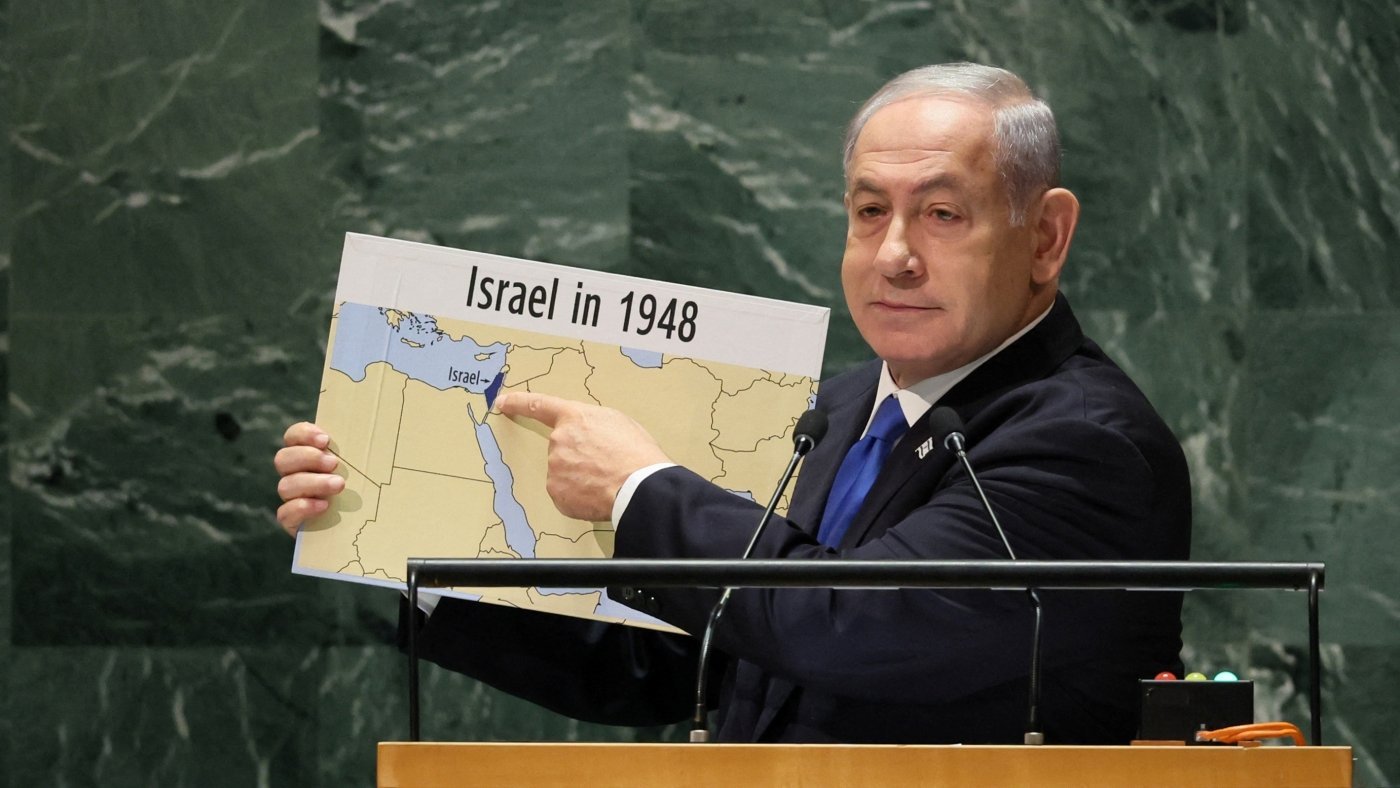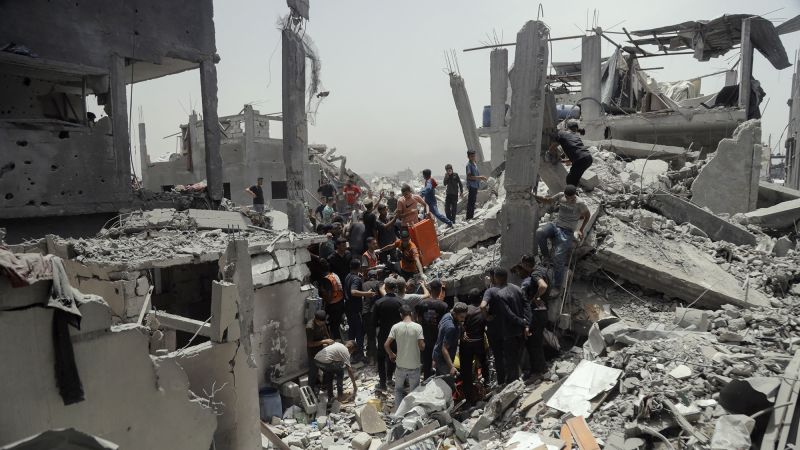How a soccer team in Chile with Palestinian roots gives fans reason to cheer amid Gaza war
Nahil Sadaqa loves soccer — and one of his favourite teams helps him connect with his Palestinian identity.
This club plays in Palestinian colours, its fans wave Palestinian flags, its sponsors include the Bank of Palestine and its jerseys have images of the keffiyeh and the Al-Aqsa Mosque.
But the team isn't based in the Gaza Strip, the Israeli-occupied West Bank or even the Middle East. This team — Club Deportivo Palestino — plays its games more than 13,000 kilometres away in Chile.
"The Palestinian people who like playing soccer or [are] soccer fans, they know about the team," Sadaqa told CBC News from Halifax. "The people who don't know soccer or don't follow soccer, [they're] learning about this team."
Founded in 1920 by Palestinian immigrants, Palestino has become one of Chile's top soccer clubs, finishing fifth or higher in the country's first division in five of the last six seasons. The team is also a regular participant in the Copa Libertadores and the Copa Sudamericana, South America's top soccer competitions.

While the Spanish-speaking players have made a name for themselves on the pitch, the Chilean team has built an international fan base for its historic connection to the Palestinian territories.
"It's not about politicians, it's not about religions, it's not about the sports. It's about humanity, it is about solidarity, it's about the main word: peace," José Nabzo, Palestino's head of communications, said in an interview from Santiago, Chile's capital.
The fan base has only grown since Israel's invasion of Gaza, which began after a Hamas-led attack on southern Israel on Oct. 7, 2023. About 1,200 people were killed and 251 were taken hostage, according to Israeli tallies. In Gaza, more than 52,000 Palestinians have been killed by Israeli airstrikes, and the population is also suffering from disease and starvation, the World Health Organization says.

Since October 2023, Palestino fans, players and personnel have worn keffiyehs and jerseys displaying images of watermelons — a symbol of Palestinian resistance — during games. The club also has an agreement with the Aida Youth Center, a Palestinian organization in Bethlehem, to provide sportswear and collaborate in sports and social activities.
"We're watching a genocide. Thousands and thousands of deaths and a lot — the majority — is innocent," said Nabzo, whose grandparents are Palestinian. "We don't forget them. We won't stop until Palestine is in peace."
Sadaqa, who has family and in-laws in the West Bank and Gaza, said the club gives those living there "relief" and shows that "we, the Palestinian people, survive wherever we go."
Palestinians have a long history in Chile. An estimated 500,000 call the South American nation home — the largest Palestinian population outside of the Middle East.
Brenda Elsey, author of Citizens and Sportsmen: Fútbol and Politics in Twentieth-Century Chile, said the first Palestinians moved to Chile — along with Lebanese and Syrians — in the 19th century.
"[They] were fleeing Turkish conscription, mostly beginning in the 1890s, and immigration kind of peaks right around pre-World War I," Elsey, a historian at Hofstra University in Hempstead, N.Y., told CBC News.
The vast majority of the Palestinians were Christian, but they were stereotyped as lacking business ethics and were accused of being unable to assimilate into Chile. So Palestino was founded to make integration easier, she said.
The soccer team stopped playing after just a few years, however, due to racial abuse from spectators, according to Elsey.
"They will play basketball, they will play tennis and they support British sports," she said. "So they continue to exist as social clubs and sports clubs. They are not a soccer club after 1923."

The soccer team returned in 1949 and became professional in 1952. Since then, it's won two titles in the Chilean Primera División — the country's top soccer league — and three Copa Chiles.
Throughout its history, the club remained a cultural hub for Palestinians in Chile.
"These sports clubs and these social clubs ... allow people to continue to have this sense of community while in Chile and also feel very Chilean," Elsey said.
"They carve a place for themselves and they write home and they tell people it's better. And then you've got yourself a real community."

Although Palestino has long had a historic connection to the Palestinian territories, Nabzo said it was initially mostly "symbolic." But the club has more strongly tapped into that identity in the 21st century.
In 2016, for example, the club visited the West Bank and played two games there, including one against the official Palestinian national team.
"I remember as soon as we got there, it was crazy. People [were] cheering for us with the [Palestino] T-shirt, like everyone knows pretty well who we are," said Diego Gutiérrez, a Canadian who was a member of Palestino from 2015-19 and now plays for Calgary-based Cavalry FC in the Canadian Premier League.

Some Palestino team members have even played for the Palestinian national team, including Gutiérrez's friend, Nicolás Zedán.
"I remember he always ... dreamed [of] playing for the team because he was [of Palestinian descent], and he always tried hard," Gutiérrez said. "He was very happy and honoured to dress [for] Palestine."
The team has also supported some foreign Palestinian activism efforts, including an encampment at the University of Toronto last year.
But some moves have landed the team in hot water. In 2014, the Football Federation of Chile fined the club after the number "1" on the back of players' jerseys was shaped like a map of pre-1948 Palestine, before Israel's creation.
While the map was removed from the back, it's still featured on the players' left shirt sleeves and on the back of their socks — a reminder of the existence of Palestinian identity before the State of Israel was created in 1948, Nabzo said. During the war that led to the creation of Israel, hundreds of thousands of Palestinians fled or were forced from their homes, a period referred to as Nakba.
"It's very important for us to say Club Palestino was founded in 1920, 28 years before the creation of the State of Israel," he said. "That broke the theory ... that the land [didn't have] any people and that thing called Palestine or Palestinian identity didn't exist."

With Palestino near the top of the Primera División and in the Copa Sudamericana's knockout-round playoffs, Nabzo said he hopes the team can soon represent Palestinians on a podium.
"The main [thing] is to be very competitive and win very important games, beat important teams ... and win trophies," he said. "That is the best way to represent the Palestinian cause."












